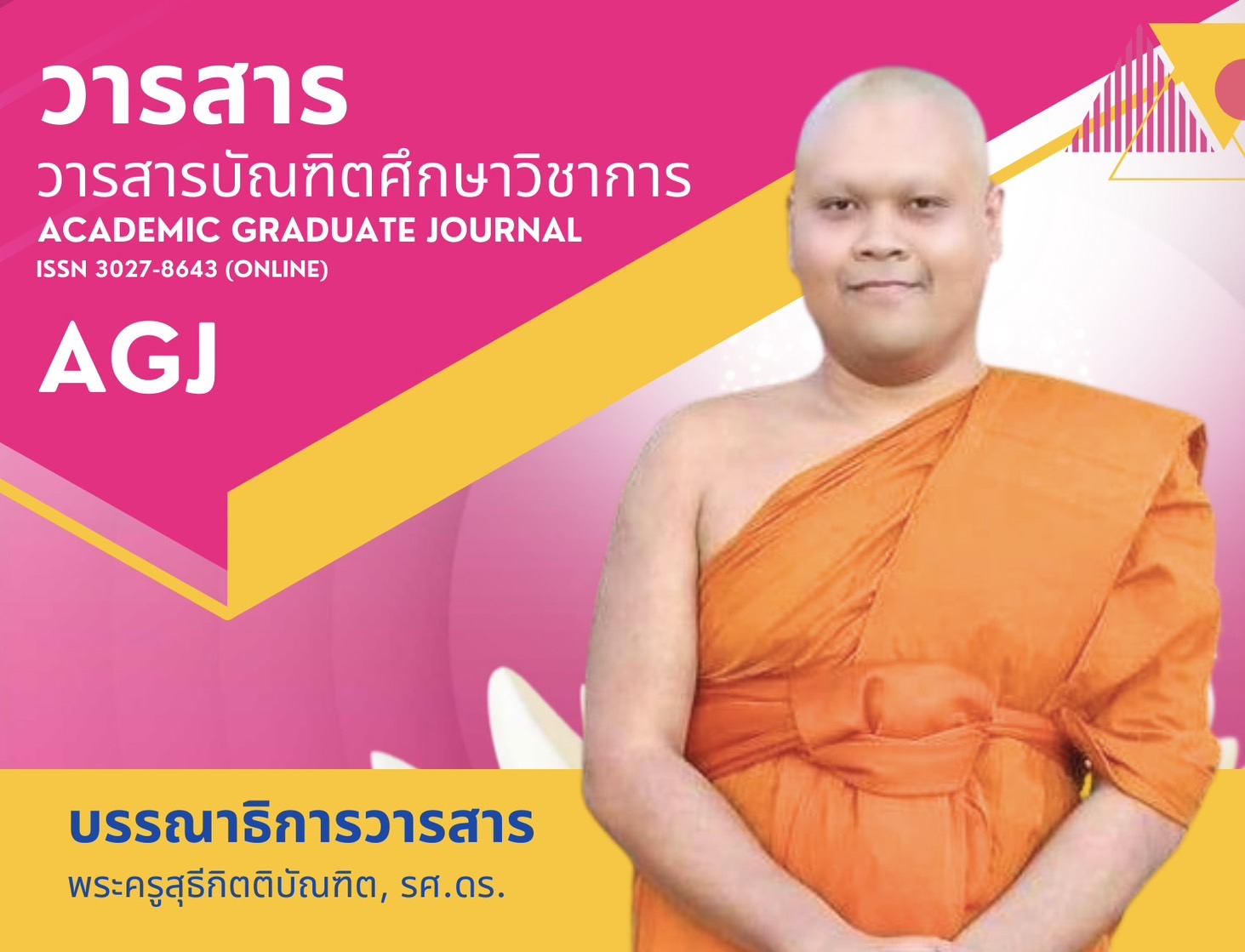IDDHIPADADHAMMA AND ENHANCEMENT EFFECTIVENESS IN ORGANIZATIONS
Keywords:
Buddhist Principle, Enhancement, Effectiveness in OrganizationsAbstract
This article studies the principles of Iddhipadadhamma and the enhancement of organisational effectiveness. The principles that will make the organisation operate effectively include the Iddhipadadhamma principle or the 4 Iddhipada principles, which will enhance effectiveness at the individual and organisational levels: 1) Chantha, having a heart of love and being content to do that. And do it with love to enhance effectiveness, which is to make people capable. Work with satisfaction Matches the expectations and needs of the organisation. 2) Viriya, diligence, diligence. Always do that with firm, patient effort, and take your business. Never give up, never give up, to enhance effectiveness, that is, to make work work to its full potential. Proceed with production to produce both quantitative and qualitative results. 3) Chitta focuses the mind, sets the mind to be aware of what is done, and does it with intention. To enhance effectiveness, that is, to make work work by selecting the most appropriate strategies and techniques for the job. 4) Vimansa means regularly using wisdom to consider, contemplate, inspect, find reasons, know how to experiment, plan, measure results, and invent ways to correct and improve. To enhance efficiency, operations must achieve quantitative and qualitative results to the utmost, using the least amount of capital, resources, and time. There is a mechanism that can adjust operations in line with changing situations both within and outside the organisation. It combines an individual's desire to thrive and develop with the organisation's goals.
References
พระธรรมปิฎก (ป.อ. ปยุตฺโต). (2543). ธรรมะกับการทำงาน (พิมพ์ครั้งที่ 3). กรุงเทพฯ: สำนักพิมพ์มูลนิธิพุทธธรรม.
พระพรหมคุณาภรณ์ (ป.อ. ปยุตฺโต). (2545). ธรรมนูญชีวิต (พิมพ์ครั้งที่ 46). กรุงเทพฯ: โรงพิมพ์กรมศาสนา.
พระพรหมคุณาภรณ์ (ป.อ. ปยุตฺโต). (2550). พจนานุกรมพุทธศาสตร์ ฉบับประมวลธรรม (พิมพ์รวมเล่ม 3 ภาค ครั้งที่ 15). กรุงเทพฯ: สำนักพิมพ์จันทร์เพ็ญ.
พุทธทาสภิกขุ. (2549). การงานที่เป็นสุข. กรุงเทพฯ: โรงพิมพ์ธรรมสภา.
มหาวิทยาลัยมหาจุฬาลงกรณราชวิทยาลัย. (2539). พระไตรปิฎกฉบับภาษาไทย ฉบับมหาจุฬาลงกรณราชวิทยาลัย. กรุงเทพฯ: โรงพิมพ์มหาจุฬาลงกรณราชวิทยาลัย.
ราชบัณฑิตยสถาน. (2556). พจนานุกรมฉบับราชบัณฑิตยสถาน พ.ศ. 2554. กรุงเทพฯ: ราชบัณฑิตยสถาน.
รุ่ง แก้วแดง และชัยณรงค์ สุวรรณสาร. (2536). แนวคิดเกี่ยวกับประสิทธิภาพองค์กร. นนทบุรี : มหาวิทยาลัยสุโขทัยธรรมาธิราช.
ศุภชัย ยาวะประภาษ. (2550). นโยบายสาธารณะ. กรุงเทพฯ: สำนักพิมพ์แห่งจุฬาลงกรณ์มหาวิทยาลัย.
อุทัย หิรัญโต. (2519). สังคมวิทยาประยุกต์. กรุงเทพฯ: สำนักพิมพ์โอเดียนสโตร์.
Gibson et al. (1998). Modernism, Postmodernism and Organizational Analysis: An Introduction. Organisation Studies.







